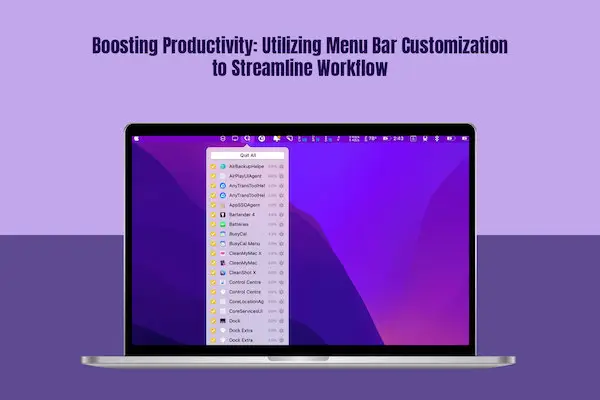A Thoughtful Analysis of Operations Management Consulting Careers

In the world of business, the role of operations management consulting has gained critical importance. As organizations strive for efficiency, scalability, and adaptability, operations consultants emerge as instrumental architects of change.
In this article, we will discuss the various aspects of operations management consulting careers and explore the responsibilities, skills, challenges, and rewards of this influential profession.
The Evolving Landscape of Operations Management
Operations management has undergone a metamorphosis in recent years, driven by globalization, technological advancements, and a heightened focus on sustainability. Traditionally associated with optimizing internal processes, operations management extends its reach across borders.
According to Harvard Business Review, the business landscape has changed, rendering traditional command-and-control operations management obsolete. A new operational model is crucial in response to the need for quicker reactions and anticipation.
Based on trust, talent, transparency, and technology, this model enables companies to expedite decision-making, navigate disruptions adeptly, and stay resilient by adapting themselves.
This requires consultants to navigate a complex web of cultural nuances, regulatory frameworks, and supply chain complexities. As businesses expand globally, operations consultants find themselves at the forefront of devising strategies that harmonize diverse operational practices.
The challenge lies in streamlining processes and ensuring cohesion amid disparate cultural and regulatory landscapes. Operations management’s evolving nature demands a nuanced understanding of international markets, making consultants indispensable architects of cross-border operational efficiency.
Responsibilities of Operations Management Consultants
Operations management consultants shoulder a multifaceted role, encapsulating responsibilities that enhance organizational efficiency. From dissecting supply chain intricacies to reengineering workflow processes, consultants act as catalysts for positive change.
As noted by Indeed, operations managers oversee interdepartmental and overall company budgets, steering critical decisions on cash flow. Their responsibilities encompass forecasting, monitoring income and revenue, and meticulously planning production costs. A proficient operations manager aligns budgetary planning with the company’s objectives, ensuring a seamless journey toward goal attainment.
They collaborate with stakeholders at various levels, conducting comprehensive analyses to identify inefficiencies and proposing tailored solutions. These professionals often find themselves immersed in projects ranging from cost-reduction initiatives to implementing cutting-edge technologies.
Effective project management, data-driven decision-making, and a keen eye for detail are essential for successful execution. Essentially, operations management consultants serve as strategic partners, working with organizations to optimize their internal processes.
Key Skills for Success in Operations Consulting
The success of an operations management consultant hinges on a diverse set of skills that go beyond academic qualifications. Analytical prowess is paramount as these consultants navigate complex datasets to derive meaningful insights.
Strategic thinking is another critical skill, enabling them to envision long-term solutions and align them with organizational goals. Effective communication is indispensable for translating complex analyses into actionable plans, while adaptability ensures flexibility in the face of evolving challenges.
Technical proficiency, particularly in data analytics and emerging technologies, is increasingly vital in a digital transformation landscape. As operations consultants straddle the worlds of technology, strategy, and implementation, possessing a holistic skill set becomes the cornerstone of their success.
The Impact of Technology on Operations Consulting
In the digital age, operations management consultants are at the nexus of technology and business strategy. Integrating advanced technologies such as artificial intelligence, machine learning, and data analytics has redefined how organizations approach their operational challenges.
Consultants leverage these tools to extract actionable insights from vast datasets, enabling informed decision-making and process optimization. Automation enhances efficiency, particularly in repetitive supply chain management and workflow tasks.
The reliance on real-time data empowers consultants to make dynamic adjustments, fostering agility in operations. As organizations increasingly embrace Industry 4.0 principles, operations management consultants find themselves at the forefront, guiding businesses through the intricacies of digital transformation.
Challenges Faced by Operations Management Consultants
While the role of operations management consultant is rewarding, it has its share of challenges. One primary hurdle is the resistance to change within organizations. Implementing new processes often faces pushback from employees accustomed to existing workflows.
Consultants must navigate this resistance diplomatically, fostering a culture of adaptability and conveying the benefits of proposed changes. Another common challenge is the pressure to deliver quick and effective solutions. Organizations often engage consultants to address pressing issues, necessitating prompt, well-thought-out interventions.
Operations management consultants face the perpetual challenge of balancing speed and quality, necessitating agility without compromising the integrity of their recommendations.
Paths to Entry and Career Progression
Navigating a successful career in operations management consulting often involves strategic educational choices. Pursuing a Master’s in Operations Management has emerged as a key pathway. As the complexities of business operations continue to evolve, a specialized education becomes increasingly valuable for those aspiring to excel in this dynamic field.
According to Kettering University, enrolling in this program provides a comprehensive understanding of the intricacies of organizational processes, supply chain dynamics, and strategic decision-making. The curriculum is designed to equip students with the industry knowledge and hands-on experience crucial for addressing the challenges encountered in operations management consulting.
The Master’s journey bridges theoretical knowledge and practical application, preparing individuals to tackle real-world scenarios within a consulting framework. Case studies, internships, and collaborative projects often form integral components of these programs, allowing students to develop a holistic perspective on operations management.
Moreover, a Master’s degree in Operations Management can significantly bolster credibility and marketability in the competitive consulting landscape. Many consulting firms actively seek candidates with advanced degrees, recognizing the specialized expertise these individuals bring to the table.
The depth of knowledge gained during a Master’s program enhances problem-solving abilities while positioning graduates as thought leaders capable of driving innovative solutions.
Rewards and Future Trends in Operations Consulting
According to US News Money, business operations managers made a median salary of $98,100 in 2022. The best-paid 25% made $154,560 that year.
However, the rewards of a career in operations management consulting extend beyond monetary compensation. The intrinsic satisfaction of solving complex problems, driving organizational change, and witnessing tangible efficiency improvements is a gratifying aspect of the profession.
Moreover, the exposure to diverse industries and challenges continually broadens consultants’ skill sets, making each project a learning opportunity. In the future, operations management consulting is expected to evolve alongside emerging trends.
Additionally, integrating artificial intelligence and advanced analytics is expected to become more prevalent, opening new avenues for innovation. As organizations grapple with the complexities of an evolving business landscape, operations management consultants remain indispensable architects of strategic and operational excellence.
In conclusion, operations management consulting is a dynamic and evolving field crucial for businesses navigating the complexities of a globalized and technologically driven landscape. The role demands a diverse skill set, blending analytical prowess, strategic thinking, and adaptability. Technology, particularly AI and data analytics, is reshaping how consultants approach challenges.
Despite the rewards, navigating resistance to change within organizations remains a persistent challenge. Strategic education, like a Master’s in Operations Management, is a valuable entry point. The future promises continued growth, with consultants set to drive innovation and excellence.









